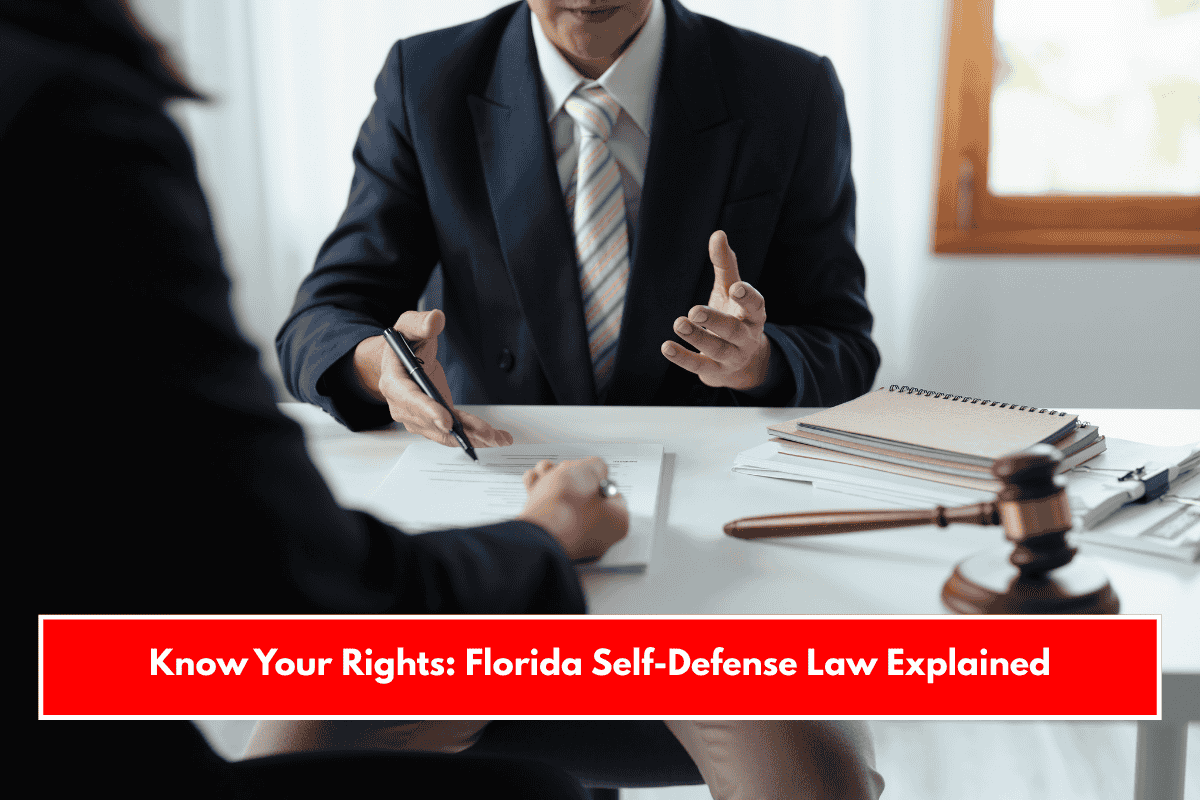Florida’s self-defense laws are among the most expansive in the United States, giving individuals strong legal protections when using force to defend themselves or others from imminent harm. Understanding the core principles, limitations, and legal standards of these laws is essential for anyone living in or visiting Florida.
Key Principles of Florida Self-Defense Law
Florida law recognizes the right to use force, including deadly force, in self-defense under specific circumstances. The state’s approach is rooted in three main doctrines:
- Stand Your Ground Law
- Castle Doctrine
- Traditional Self-Defense
Each doctrine shapes how, when, and where force may be lawfully used.
Stand Your Ground Law
Enacted in 2005, Florida’s Stand Your Ground law removes the traditional “duty to retreat.” This means that if you are in a place where you have a legal right to be, you do not have to attempt to escape or withdraw before using force—even deadly force—if you reasonably believe it is necessary to prevent imminent death, great bodily harm, or the commission of a forcible felony against yourself or another person.
Key elements:
- No Duty to Retreat: You are not required to retreat before using force, even in public spaces, as long as you are lawfully present.
- Reasonable Belief: You must reasonably believe that force is necessary to prevent imminent harm. Courts assess this from the perspective of a reasonable person in the same situation.
- Proportionality: The force used must be proportional to the threat. Deadly force is justified only if the threat involves death, great bodily harm, or a forcible felony.
- Immunity from Prosecution: If your use of force is deemed justified, you are immune from criminal prosecution and civil action.
The Castle Doctrine
The Castle Doctrine is a legal principle that extends special protection to individuals defending their home, vehicle, or occupied dwelling. Florida law presumes that someone who unlawfully enters your home or car intends to cause harm, and you are justified in using force, including deadly force, without a duty to retreat.
Non-Deadly vs. Deadly Force
- Non-deadly force is any force not likely to cause death or great bodily harm, such as pushing or restraining someone.
- Deadly force is force likely to cause death or serious injury, such as using a firearm.
The law allows non-deadly force to prevent unlawful force, and deadly force to prevent imminent death, great bodily harm, or certain felonies.
When Self-Defense Does NOT Apply
There are important exceptions and limitations:
- Unlawful Activity: You cannot claim Stand Your Ground if you are engaged in illegal activity at the time.
- Provocation: If you provoked the attack, you must clearly withdraw and indicate your desire to stop before regaining the right to self-defense.
- Law Enforcement: The law does not protect you if the person you used force against is a law enforcement officer performing official duties and properly identified themselves.
- Proportionality: Excessive force beyond what is necessary to stop the threat is not protected.
Legal Process and Burden of Proof
If you claim self-defense, Florida law places the burden on prosecutors to prove by clear and convincing evidence that your actions were not justified. Courts and juries will evaluate the circumstances from the perspective of a reasonable person, considering the immediacy and severity of the threat.
Practical Implications
- You may use force to defend yourself or others against immediate threats in your home, car, or any place you have a right to be.
- You do not have to retreat before defending yourself.
- Your belief in the need to use force must be reasonable and the force proportional.
- Misuse of self-defense claims can still lead to criminal charges.
Florida’s self-defense laws empower individuals to protect themselves without the obligation to retreat, provided their actions are reasonable and proportional to the threat faced. However, these rights come with significant responsibilities and legal nuances. Understanding the law’s boundaries—and seeking legal counsel if involved in a self-defense incident—is crucial to ensuring your actions remain within the law.
Sources
- https://www.legalsurvivalguide.org/self-defense-law/
- https://www.southfloridacriminalattorneysblog.com/understanding-self-defense-laws-in-florida-your-right-to-protect-yourself/
- https://www.bonderudlaw.com/blog/understanding-self-defense-laws-in-florida/
- https://www.mazinlaw.com/blog/2025/april/understanding-floridas-stand-your-ground-law-wha/
- https://daytonadefense.com/blog/self-defense-how-floridas-stand-your-ground-law-works/















